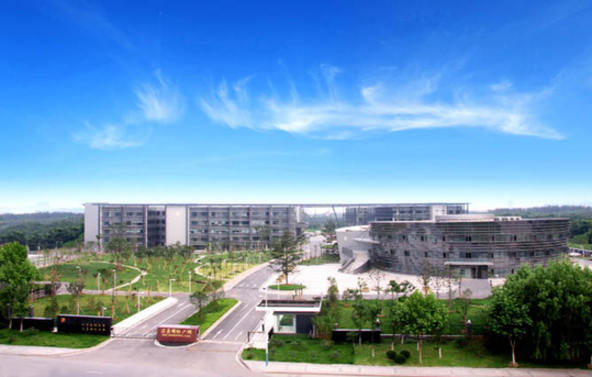Enhanced Competitiveness through Solidarity
The coastal province of Jiangsu in East China has been a trendsetter in reform of the country’s state-owned enterprises (SOEs), by drawing on experiences from countries around the world, including the model of Singapore’s Temasek Holdings Pte Ltd. Such efforts are epitomized in Jiangsu Soho Holdings Group Co., Ltd., whose reforms since 1984 have led to successful results after initial pangs, manifest in its increasing clout at home and abroad, and its efficient management.
 |
| SOHO International Plaza. |
Streamlining Management Structure by Regrouping
Soho Holdings was born out of the merger and regrouping of six large SOEs – Jiangsu Silk Group, Jiangsu National Defense Industrial Assets Management Corporation, Jiangsu Soho International Group Corporation, Jiangsu Textile Group, Jiangsu Petrochemical Assets Management Corporation, and Jiangsu Holly Group – four of which had been flag bearers in their respective industries. In its early years, this newly-formed conglomerate was beleaguered by scores of internal problems like more than 160 subsidiaries with overlapping businesses, therefore competing with each other in a confused manner. Moreover, along with their own branches, they constituted a multiple-tiered convoluted management pyramid which severely affected efficiency. With different corporate cultures and positioning, these companies could barely pool together their resources and advantages to develop core competitiveness.
To change this situation, Jiangsu Soho Holdings Group clarified its development path in 2011 – as an investment holding group – and increased its registered capital from RMB 263.68 million to RMB 2 billion. The extra funds came from its profits and savings over past years. In addition, it pinpointed related core businesses for its major companies.
This overhaul, however, did not resolve the problem of the parent, subsidiary and sub-subsidiary companies holding shares in each other. In some cases, several companies in the group had invested in the same project. This led to an overly complicated shareholding structure within the group which impeded management. Soho Holdings therefore introduced the “four basic rules”: ensuring the independence of publicly listed companies in the group, reducing instances of cross shareholding, regulating share transfers, and laying down guidelines for connected transactions. In this way the group established overall control of investment and was therefore able to make more rational decisions concerning stock rights.
The streamlined corporate structure of Soho Holdings resulting from this reform laid a solid foundation for the group’s specialized intensive administration, and accelerated the transformation of its subsidiaries, reinforcing the overall strength of the conglomerate. This immediately resulted in Soho Holdings’ international businesses maintaining stable growth, while its domestic businesses made remarkable advances: its projects in the cultural industry stanched the red to make profits, and investment and real estate emerged as new profit-makers, in addition to the conventional trade sector.
The regrouping has continued from 2011 to date. Over these years Soho Holdings has integrated internal resources, improved management efficiency, reorganized business relationships between its subsidiary companies, strengthened risk control, and diversified its businesses. Subsidiaries were required to redefine their positions and orientations in the market, optimize their core businesses and make institutional innovations. The group hence established four priority businesses: investment, trade, culture, and real estate.
